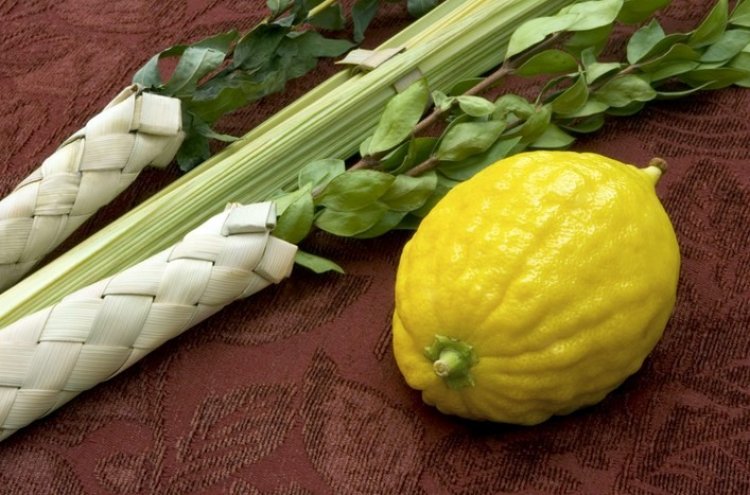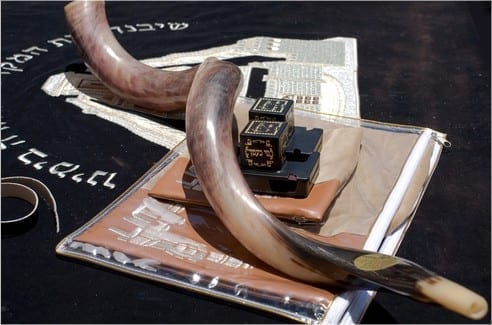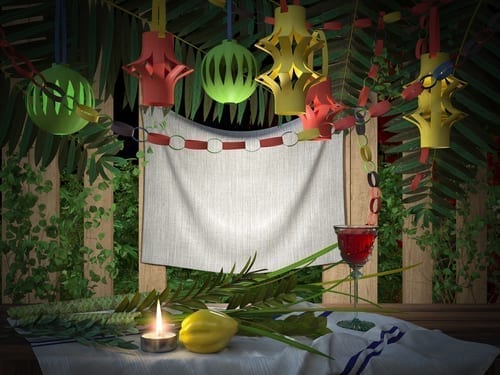On Sukkot, when we shake the four species, we shake them forward at the word “Hodu which means thank, backward at the word “tov” which means good, upward at the word “l’olam” which means forever and downward at the word “Chasdo” which means His kindness.
Is there any lesson that these words teach us?
We shake the lulav forward at hodu- thanks. It’s easy to thank, G-d, when events are in front of us – obvious to a person. Nevertheless, the Talmud points out: “How often is it, that a person has no inkling of how much G-d is helping him every step of the way?!” (Bava Kamma 20b).
Next, we shake the lulav backward at tov. There are times in our own life when the events seem to appear in ‘back of us’ – i.e. don’t make sense. When that happens, we ask aloud to our Creator, “How is this tov, for my own good?” [Interestingly, the Talmud says, “If one sees the letter ‘tet’ in his dream it is a good sign for him, for the first ‘tet’ in the Torah is in the word tov, good” (Rashi on Bava Kamma 55a).
There is nothing wrong with asking this question, for the Talmud tells us, “A person whose suffering causes him to challenge G-d is not sinful” (Bava Batra 16b). He can use this question as a springboard to ask G-d for meaning, trying to process what happened.
Yet, we have to realize that we cannot understand G-d’s doings. As the prophet states, “My thoughts are not your thoughts and your ways are not My ways” (Isaiah 55:8). Though we don’t always understand what happened, “One must bless Hashem for misfortune as well as for good” (Tractate Berachot 54a).
The words l’olam chasdo mean His kindness endures forever. As in “Olam chesed yebaneh, Forever, will [Your] kindness endure” (Psalm 89:3). Olam can also mean world. If you flip around the word Olam, it spells ‘alum’ which means hidden. This teaches us that G-d’s mastery is brilliantly revealed within creation through the Divine workings of hatevah, the natural [world], which, like Elokim, ‘The Lord’ [spelled with a hei], has the numerical value of 86 (Shelah commentary on Tractate Shavuot 42). G-d gives man the ability to see His existence through nature or he can deny it (see Rav Shach on Chumash, page 16-17).
By waving the lulav upwards at l’olam, we are saying to G-d, “Your kindness endures l’olam, forever.” When we wave the lulav downwards at chasdo, we are telling the Creator, “Even in this ‘olam’-world, Your kindness exists; although it may seem to be ‘alum’, hidden.” What we often perceive in our lives as G-d’s strict justice, is in reality His abundant mercy!
This article is dedicated in memory of Dovid ben Uri A”H, Kayla Rus bas Bunim Tuvia A”H, Sarah bas Henoch Avraham, Shmuel Dovid HaLevi ben R’ Yosef Moshe HaLevi zt”l and as a merit for a complete recovery of Chayah Malka bas Bas-Sheva, Shmuel ben Channah Menuchah and Shlomo Avraham Moshe ben Rivkah Shaindel.





